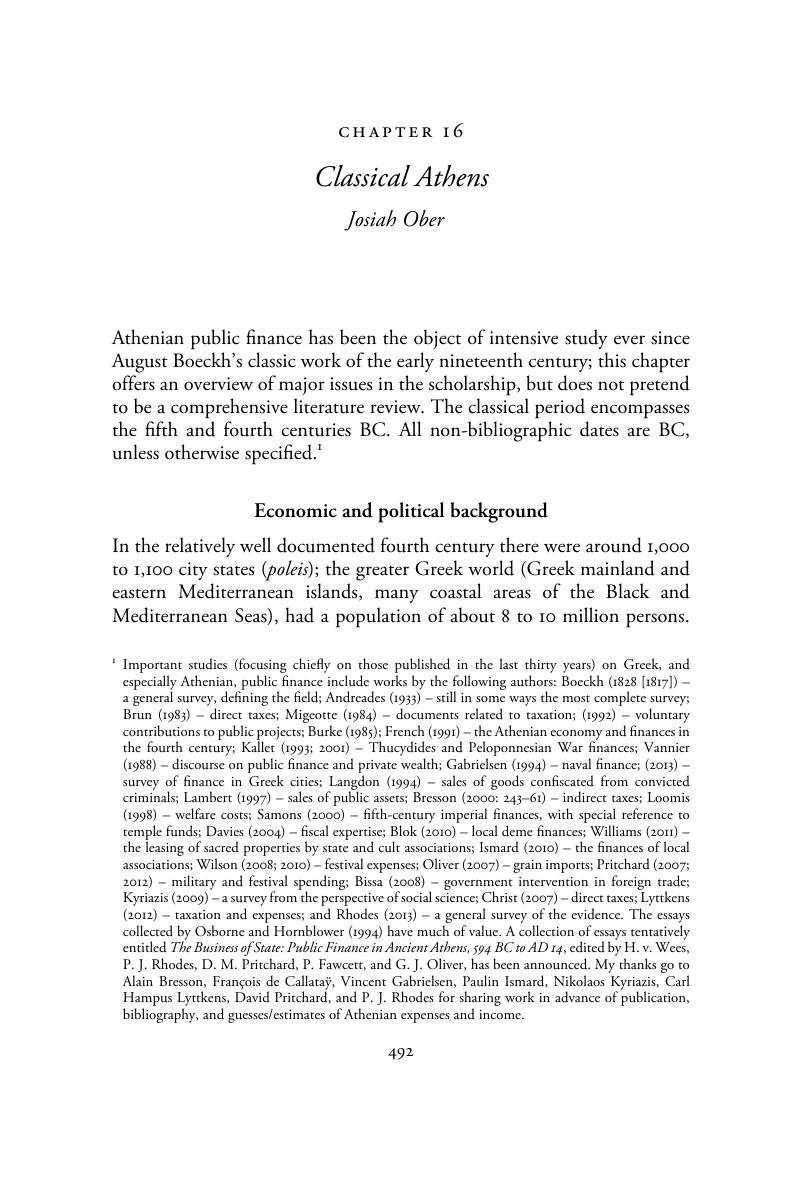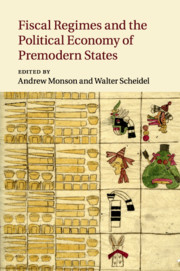Book contents
- Fiscal Regimes and the Political Economy of Premodern States
- Fiscal Regimes and the Political Economy of Premodern States
- Copyright page
- Contents
- Figures
- Tables
- Notes on contributors
- Book part
- Introduction
- Part I Diversity and Commonalities in Early Extraction Regimes
- Part II Determinants of Intensification and Abatement
- Part III Divergent Trends among Established Regimes
- Part IV Fragmented Political Ecologies and Institutional Innovation
- Chapter 15 The Greek polis and koinon
- Chapter 16 Classical Athens
- Chapter 17 Why did public debt originate in Europe?
- Part V Comparative Perspectives and New Frontiers
- Index
- References
Chapter 16 - Classical Athens
from Part IV - Fragmented Political Ecologies and Institutional Innovation
Published online by Cambridge University Press: 05 May 2015
- Fiscal Regimes and the Political Economy of Premodern States
- Fiscal Regimes and the Political Economy of Premodern States
- Copyright page
- Contents
- Figures
- Tables
- Notes on contributors
- Book part
- Introduction
- Part I Diversity and Commonalities in Early Extraction Regimes
- Part II Determinants of Intensification and Abatement
- Part III Divergent Trends among Established Regimes
- Part IV Fragmented Political Ecologies and Institutional Innovation
- Chapter 15 The Greek polis and koinon
- Chapter 16 Classical Athens
- Chapter 17 Why did public debt originate in Europe?
- Part V Comparative Perspectives and New Frontiers
- Index
- References
Summary

- Type
- Chapter
- Information
- Fiscal Regimes and the Political Economy of Premodern States , pp. 492 - 522Publisher: Cambridge University PressPrint publication year: 2015
References
- 21
- Cited by

